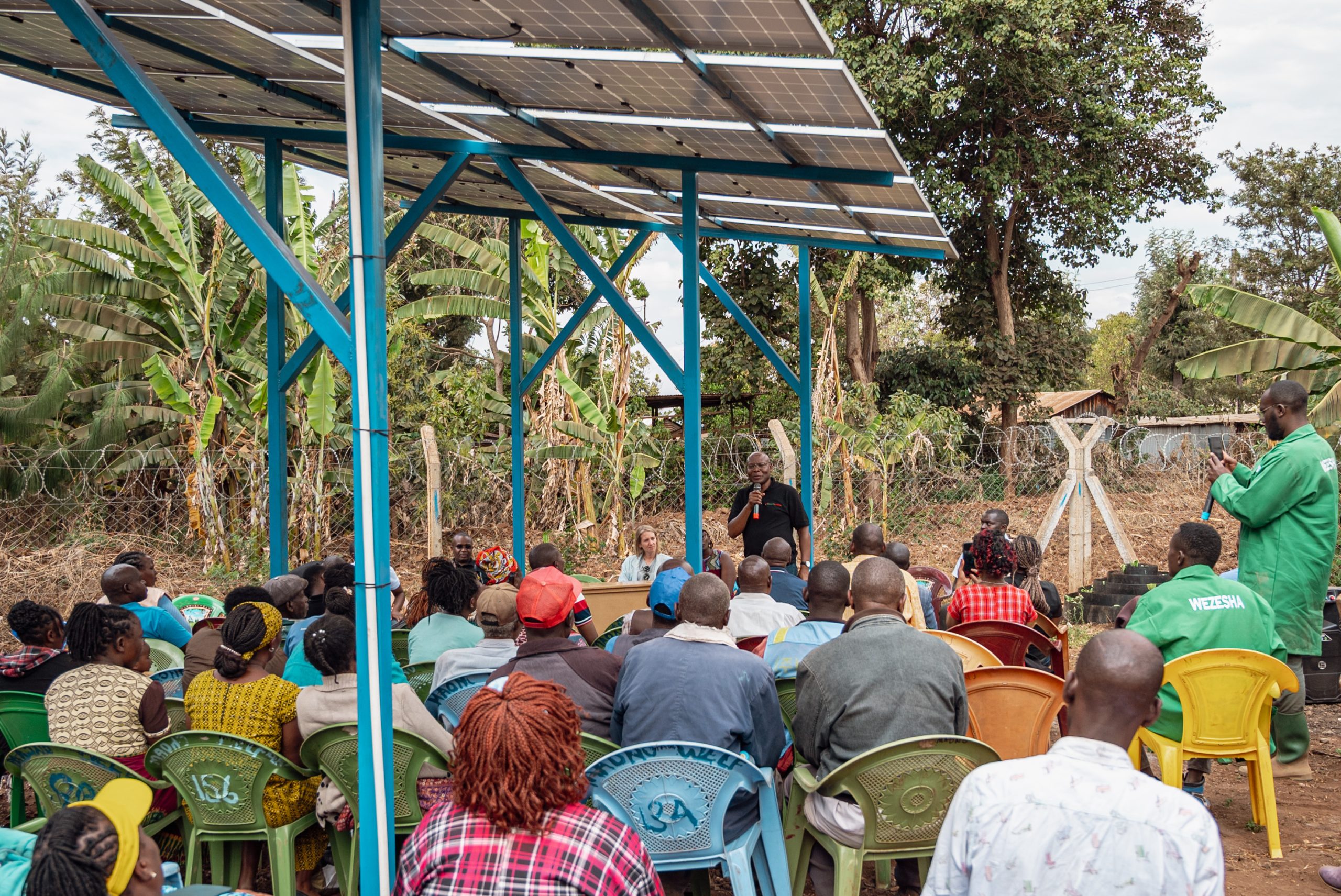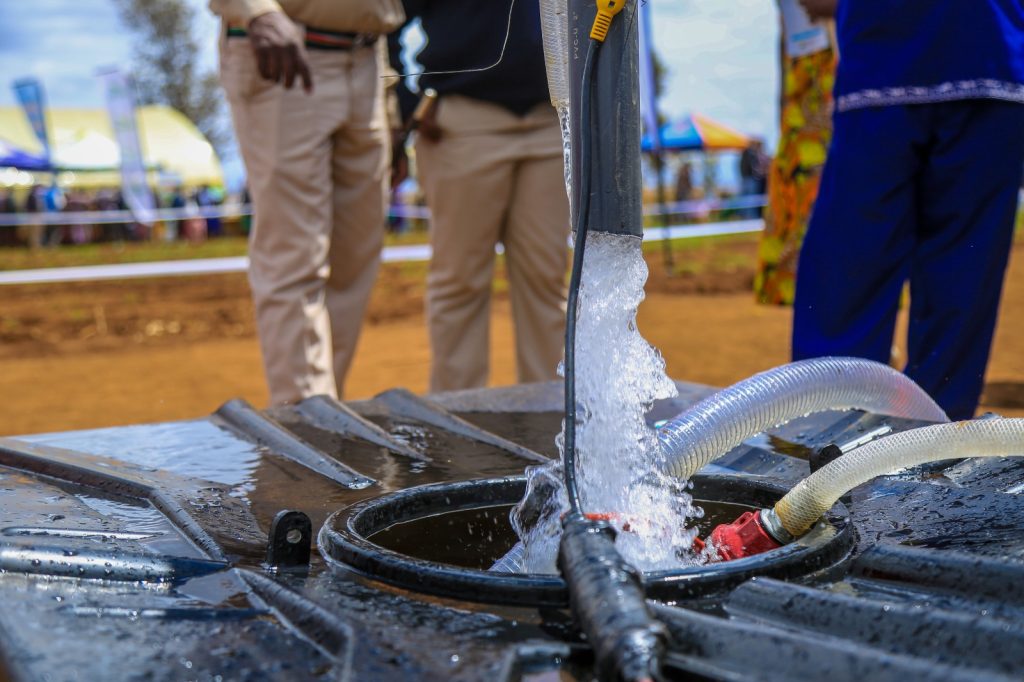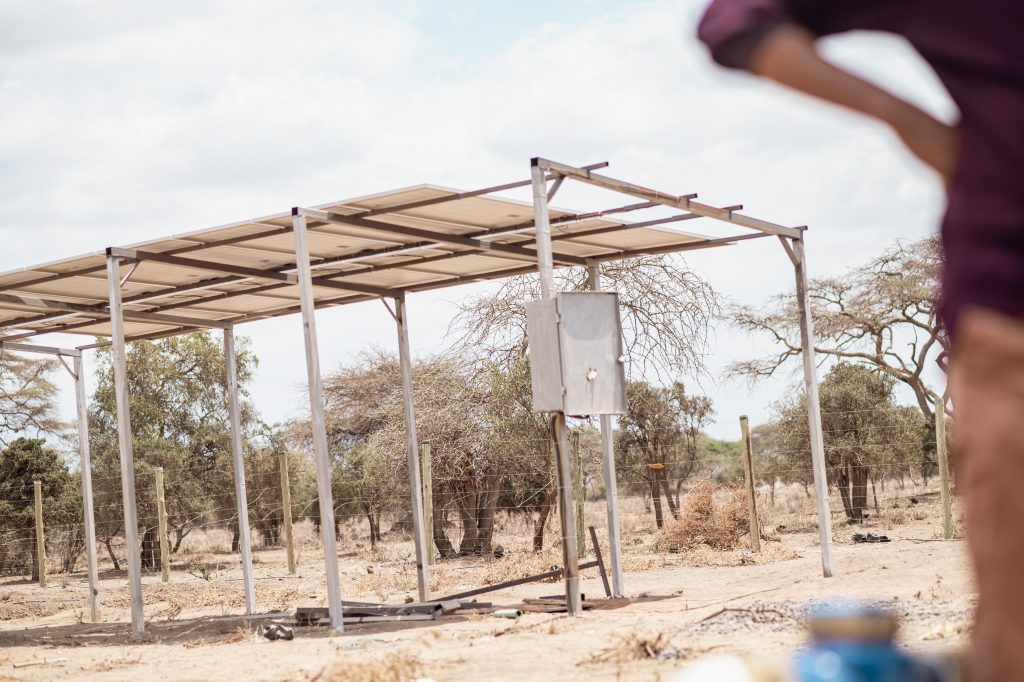
Each year, millions of people throughout the world struggle with water scarcity. Despite the amount of water on the earth to support all 8 billion people, too much is mismanaged, wasted, and contaminated. With the world population rapidly growing and as technology advances, access to water and the global standards for dependability and efficacy are falling behind.Kajiado county falls under the Arid and Semi-Arid Lands (ASALs). This means that the area experiences severe drought, little rainfall, seasonal rivers, poverty, and a serious lack of clean water supply. Since the droughts are usually frequent, most seasonal rivers dry up. This forces the community to rely on water from extremely contaminated sources, such as boreholes that require walking several kilometers to locate, dry river beds, silanga (water pans), and unprotected open wells.
Additionally, both man and animals share water sources in this county. This makes water easily contaminated by fecal matter from the animals, livestock hooves, and fur. Even worse, a large percentage of the community (which is pastoralists) do not have an adequate way of disposing of fecal matter. This is problematic during rainy seasons when there is surface runoff and the fecal matter contaminates the seasonal rivers making the pollution even worse.
That’s where Africa Instore Solutions comes in.
Africa Instore Solutions has a 100% success rate across all the water projects we have implemented to date. How do we do this? We operate on a holistic approach focusing on the following key strategies to provide clean water:
- Community engagement and needs assessment: We begin by engaging with the community to understand their specific needs and challenges. This involves conducting thorough needs assessments and consulting with local leaders and residents to design tailored interventions.
- Partnerships and collaborations: We collaborate with government bodies, private sector entities, and community-based organizations to pool resources, expertise, and technology. These partnerships are crucial for the successful implementation and sustainability of our projects.
- Innovative technology: AIS employs cutting-edge technologies such as solar-powered water systems and boreholes to ensure reliable and sustainable water supply. By using renewable energy sources, we reduce the dependency on unreliable electricity grids and high fuel costs.
- Capacity building and training: We provide training to community members on the maintenance and management of water infrastructure. This empowers local communities to take ownership of the projects, ensuring long-term sustainability.
Providing clean water

It takes more than implementing clean water infrastructure and solutions to solve the world’s water crisis. To become anchors for development within rural communities, we must confront the challenges we face with community involvement, proper training, and long-term maintenance.
Let’s look at how Africa Instore Solutions confronts the challenges that come with the provision and implementation of community water projects in Kajiado County.
1. Financial access
Installing a community project is not easy. It requires a huge amount of money. With most of the community members relying on agriculture as their source of income, they tend to struggle with raising the necessary funds to successfully install the community projects. In many cases, they sadly leave the project halfway and go back to fetching water in the seasonal rivers which are usually kilometers away.
Solution
How does AIS address this challenge? We foster well-organized community structures and leadership. We do this by attending the community monthly meetings and helping the members brainstorm ways to raise money for the project. With the right leadership, the community can raise enough funds to deposit and start the implementation of the project.
Additionally, we also extend Result-Based Financing (RBF) facilities to communities and social institutions, enabling them to initiate and sustain their water projects. This financial support is critical in helping communities mobilize resources and make the initial investment needed for such projects.
2. Expertise in technical matters
The main reasons why water projects fail are inadequate technical knowledge, inadequate quality of knowledge, and inadequate application of that knowledge during the development, implementation, and monitoring of a clean water system.
The long-term success of a project is determined by on-the-ground technical and local experts. If the experts listen and understand the community’s needs and goals, then the project will be successful and sustainable. Additionally, proper maintenance of the system after installation is crucial for long-term success.
How does AIS succeed in technical expertise?
Before installation, the SolarGen team (our partners and suppliers of solar products) conducts thorough surveys to identify the number of beneficiaries and the specific needs of the community. This meticulous planning ensures the correct size and type of pumps and solar panels are used, leading to a flawlessly executed project.
After successful installation, two community members are trained specifically in maintaining and managing the technical components. These trained individuals have a direct link with engineers at SolarGen, providing ongoing technical support.
3. Lack of Accessibility
Most parts of Kajiado County are remote areas characterized by challenging terrain. Reaching these rural areas is challenging due to poor road conditions and limited infrastructure.
How does AIS succeed in reaching these remote areas?

We have successfully implemented community projects in even the most remote areas of this county. How have we achieved this? By mobilizing the community and assessing their needs on the ground. This hands-on approach allows us to understand the unique challenges each community faces and devise tailored solutions. By working closely with the local residents, we ensure that even the most inaccessible areas receive the support they need.
4. Unwillingness to shift from electric grid to solar energy
There are so many misconceptions revolving around the shift to solar energy. This makes some community members reluctant to transition from traditional electric grids to solar energy, often due to a lack of understanding of the benefits.
How does AIS ensure that the community understands the benefits of solar energy?
AIS addresses this reluctance through comprehensive training programs that educate the mobilized community about the importance and advantages of solar energy. These training sessions highlight the cost savings, reliability, and environmental benefits of solar power, encouraging wider acceptance and adoption.
Conclusion
In every success story lies the challenges overcome to get there. In implementing community water projects in Kajiado County, Africa Instore Solutions understands and acknowledges the numerous obstacles we face in the water aid sector. It’s more than just installing a clean water system—it’s about ensuring that our partner communities have sustainable access to clean water for life.
By addressing financial constraints, providing technical training, overcoming accessibility issues, and fostering acceptance of solar energy, AIS has turned challenges into opportunities. Our commitment to sustainable development and community empowerment drives us to create lasting, positive impacts.
In the end, it’s not just about water—it’s about life, growth, and the unwavering spirit of communities coming together to overcome adversity.
